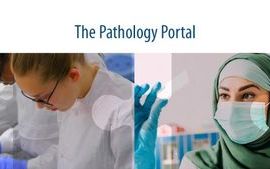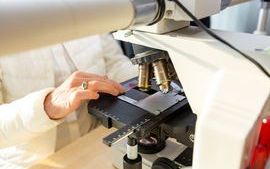- Published:
- 22 April 2025
- Author:
- Trainee Advisory Committee
- Read time:
- 5 Mins
Examinations are always an area of great interest for trainees – after all, it governs checkpoints in training and has a reasonable cost associated with it. This article will summarise some of the important questions asked of the assessment team by your Trainee Advisory Committee.
During Trainee Advisory Committee (TAC) meetings, there is a chance for trainees’ questions to be answered by College staff. The questions and responses are always subsequently published on the College website. Below, we summarise some of the questions and responses around examinations at the most recent TAC meetings. If you would like to view the full questions and associated answers, they can be found at the above link. Questions related to training are also discussed in the TAC Q&A sessions but are not summarised in this article.
How does the College use feedback from examinations and what is the approach to quality improvement for examinations?
As you may know, there is a candidate survey undertaken at the end of every examination session and the feedback received is circulated for all specialties to the Examinations Committee, and then each Exam Panel Chair receives the feedback for their specialty to review, in order to pick up on any issues raised.
The College is also considering other online examination providers to continue to develop and improve the delivery of the examinations. We are aware that online examination platforms have developed since we moved our examinations online towards the end of 2020.
Could a summary of costs for the FRCPath examination be given? Microbiology is a 1-day exam that costs the same amount as the other FRCPath examinations – why is this?
There is a breakdown of the cost of the FRCPath Part 2 examinations on the College website that was prepared some years ago. While it needs updating, this still gives a broad picture of the costs of running our examinations. In the intervening period, the College has employed additional staff members in the Examinations Team to help support the delivery of examinations and there have been increased costs in the hire of examination centres (although the College building is used if possible for London-based examinations to minimise costs).
The College has always taken the approach of charging the same for each Part 2 examination. This approach was checked with trainees in 2018 and the majority agreed. The College examination fees are kept under review and do not make a profit. College examination fees are also tax-deductible for UK taxpayers. There is more information available on the College website.
What steps is the College taking to reduce examination costs given the high burden of cost?
Unlike many other colleges, the College delivers a number of different specialty examinations, which necessarily inflates costs to a degree (as opposed to running 1 or 2 examinations for large number of candidates). All the College examinations are currently under review. This includes looking at the delivery, format and length of the examination. Once this is complete, fees will be revisited.
There was a small increase in exam fees this year, but in the 2 years prior to that exam fees did not increase at all.
Would it be possible to provide microscopes for trainees sitting examinations?
A version of this has been trialled in the past (the College hired microscopes for each examination session) but there was not a lot of uptake from candidates, who preferred to bring microscopes they were familiar with. There are some companies that will hire individual microscopes to candidates for examination purposes and candidates can arrange this if they wish.
The College would not be able to buy microscopes for exam use for a range of reasons, e.g. initial outlay cost and costs related to maintenance, lack of storage space/space rental costs, transport costs, lack of support for exam set up and packing away). This is why the College has looked to microscope hire on occasion.
Is it possible to release FRCPath Part 1 examination results earlier?
Releasing examination results for all examinations and specialties at once allows all examinations to run smoothly. There would need to be a delay in the delivery of the FRCPath Part 2 examinations to support the earlier release of FRCPath Part 1 examinations. Not all the FRCPath Part 1 examinations are multiple choice questions and many require marking by examiners, in addition to the QA of all results.
The team provides as much information upfront as possible about dates for the application window for each session, with at least 5 weeks allowed for applications to be made.
Even if realignment of Part 1 and Part 2 exam and results dates took place, this would not substantially change the interval between exam sittings and the time available to plan a resit.
Various questions were asked regarding the format, running and curriculum content assessed within the Part 2 examinations, with focus on haematology and histopathology. For example, one question discussed modularising examinations within haematology and another asked about a digital format histopathology Part 2 examination. The below answer amalgamates the answers given across multiple areas.
All the College examinations are currently under review – this includes the Haematology FRCPath Part 2 examination, which is currently under discussion. This review looks at the delivery, format and length of the examination. As examinations are revised by the relevant examination panels, applications for approval by the General Medical Council will be made (for relevant medical examinations) and updates will be circulated to candidates and potential candidates once approval is confirmed.
In the meantime, your feedback will be sent to the haematology examiners. However, it should be clarified that the purpose of the exam is not to assess capabilities needed to practise in a district general hospital – it is to assess whether curriculum outcomes have been achieved, including less commonly encountered clinical and laboratory scenarios.
The examinations cannot be taken locally for a number of reasons. It would require large numbers of examiners to travel around the country, since we avoid candidates being examined by examiners known to them; many candidates who attempt the examinations are not based in the UK.
Regarding taking microscopes to examinations, we have raised this with Lead Deans for haematology and histopathology to try and ensure a national approach to supporting candidates with this issue but this has yet to reach a final conclusion.



